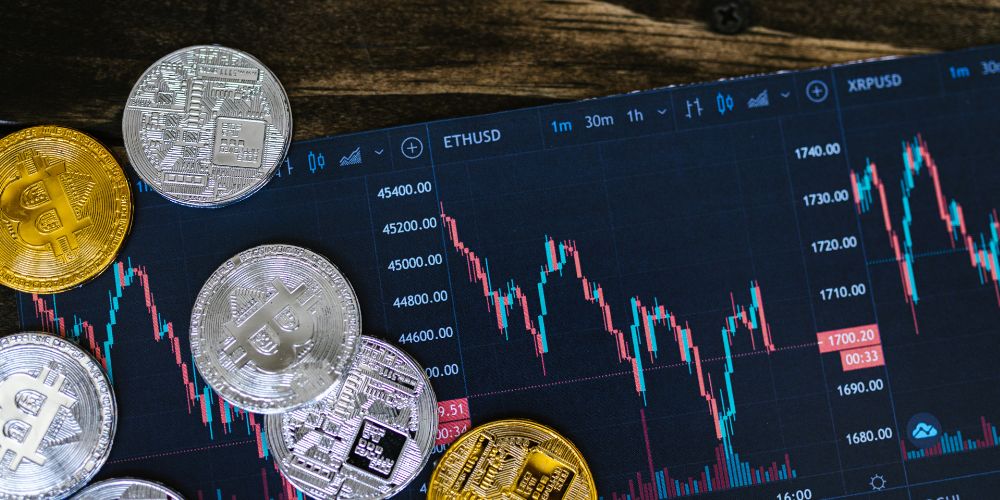In the world of cryptocurrency, investors are always on the lookout for the best opportunities to grow their wealth. Among the numerous options, Bitcoin and altcoins (alternative cryptocurrencies) stand out as top choices. But which one is better for your crypto portfolio? Let’s dive into a detailed comparison.
What is Bitcoin?
Bitcoin is the pioneer of the crypto space, launched in 2009 by the mysterious figure Satoshi Nakamoto. It’s the first decentralized cryptocurrency that operates without a central authority, using blockchain technology. Today, Bitcoin is often referred to as “digital gold” due to its limited supply of 21 million coins and its store-of-value properties.
What Are Altcoins?
Altcoins refer to any cryptocurrency that isn’t Bitcoin. There are thousands of them, with Ethereum, Ripple (XRP), and Litecoin being among the most popular. Thus, every altcoin has a distinguishing use case, technology, and market dynamics. Some focus on improving on the Bitcoin model while others take the initiatives to target other markets such as finance, supply chain, data privacy, and so forth.

Crypto Market Cap Comparison: Bitcoin vs. Altcoins
The crypto market cap is an important metric when evaluating cryptocurrencies. It indicates the entire value of all coins in circulation. Bitcoin has always been at the top of the table and, in most instances, grabbed over 40% of the entire crypto market cap.
However, altcoins as a whole constitute much more market share. For instance, Ethereum, the second-largest cryptocurrency, holds a significant portion of the total crypto market cap due to its smart contract capabilities. Understanding crypto prices and market cap helps investors make informed decisions.
Why Bitcoin is Essential in a Crypto Portfolio
- Store of Value: Bitcoin is widely considered a safe haven in the crypto world. Its limited supply makes it resistant to inflation, unlike fiat currencies.
- Institutional Interest: Large corporations and institutional investors have been increasingly adopting Bitcoin as a hedge against inflation. This trend has driven crypto prices for Bitcoin higher over time.
- Liquidity: As the most popular cryptocurrency, Bitcoin has the highest trading volume, making it highly liquid. This means it’s easier to buy or sell Bitcoin compared to altcoins.

Advantages of Altcoins in a Crypto Portfolio
- Diverse Use Cases: Altcoins like Ethereum have unique technological innovations, such as smart contracts. This provides more utility than Bitcoin in some cases.
- Higher Growth Potential: Many altcoins are still in their early stages, giving them the potential for higher returns, especially if their technology gains widespread adoption.
- Lower Entry Costs: With crypto prices for many altcoins being significantly lower than Bitcoin, they offer an easier entry point for new investors. A balanced portfolio may benefit from both high-growth altcoins and stable assets like Bitcoin.
Security Concerns: Bitcoin vs. Altcoins
Security is a top priority for any crypto investor. Bitcoin’s large network of miners makes it highly secure and difficult to attack. Its long-standing reputation and technology make it less vulnerable to hacks.
Altcoins, especially smaller ones, can have weaker security due to fewer nodes and a smaller network size. This increases the risk of 51% attacks, where an attacker could control the majority of the network and manipulate the ledger. Always consider the security measures of a cryptocurrency before investing.

Regulatory Environment
Governments worldwide have started regulating the crypto space. While Bitcoin is often the focus of regulatory discussions, altcoins can face more scrutiny due to their varied use cases. Some countries have taken steps to classify specific altcoins as securities, which could impact their trading availability and crypto prices.
Regulatory clarity can boost confidence in both Bitcoin and altcoins, but it’s crucial to stay updated with the latest crypto news to anticipate how new regulations might affect your portfolio.
Volatility and Risk Management
- Bitcoin: Although Bitcoin is volatile compared to traditional assets, it tends to be more stable compared to altcoins. Its larger market and established reputation contribute to its relative stability in the crypto market.
- Altcoins: Many altcoins experience extreme price swings. While this volatility can lead to higher gains, it also carries greater risk. Proper risk management is essential when investing in altcoins. Always diversify your crypto holdings to balance potential gains and losses.

Which Should You Choose for Your Crypto Portfolio?
The best choice depends on your investment strategy:
- Long-term Stability: If you’re looking for a long-term store of value and relative safety, Bitcoin is likely the better choice.
- High Growth Potential: For those willing to take on more risk for potentially higher returns, altcoins may offer the growth you’re seeking.
- Balanced Approach: A diversified crypto portfolio might include both Bitcoin and altcoins. This way, you can enjoy Bitcoin’s stability while also benefiting from the growth potential of altcoins.

Final Thoughts
Choosing between Bitcoin and altcoins for your crypto portfolio depends on your risk tolerance, investment goals, and knowledge of the cryptocurrency market. Both have their pros and cons, and a combination of the two may be the ideal approach for many investors.
As the crypto landscape evolves, staying updated with the latest crypto news, crypto prices, and market trends is key to making informed investment decisions. Whether you lean towards Bitcoin or are interested in exploring altcoins, there’s potential for growth in the ever-expanding world of cryptocurrency.
At TKCreationz, we not only craft cutting-edge web designs but also keep you updated with the latest cryptocurrency trends and news, helping you stay ahead in the ever-evolving digital economy.


















